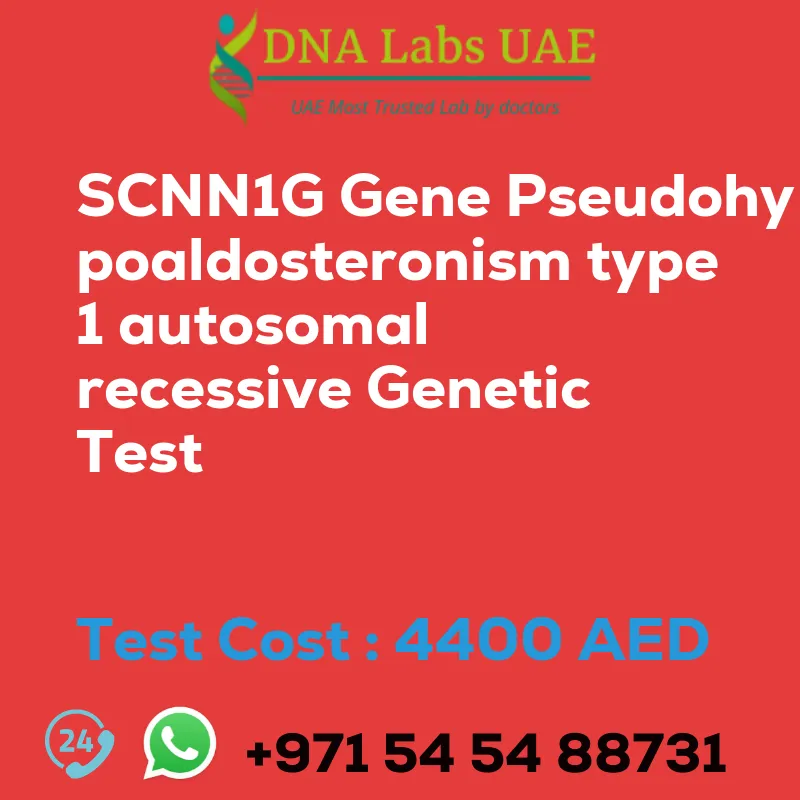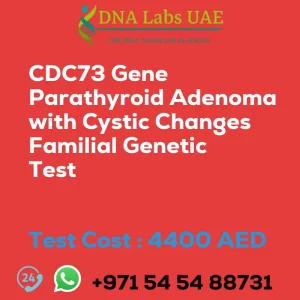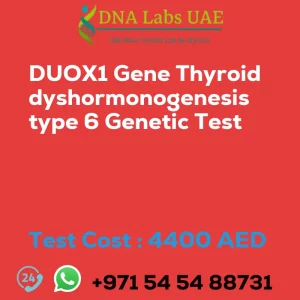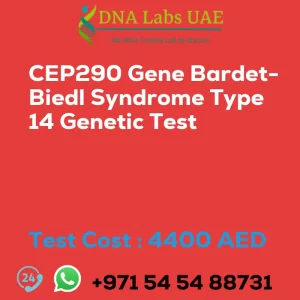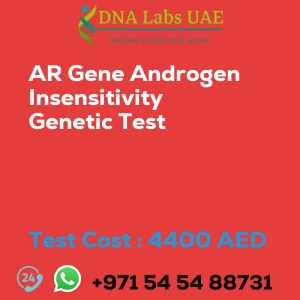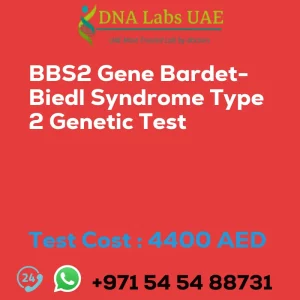SCNN1G Gene Pseudohypoaldosteronism Type 1 Autosomal Recessive Genetic Test
Genetic testing is an important tool in diagnosing and understanding genetic disorders. One such disorder is SCNN1G Gene Pseudohypoaldosteronism type 1, which is inherited in an autosomal recessive manner.
Test Name
SCNN1G Gene Pseudohypoaldosteronism type 1 autosomal recessive Genetic Test
Components
- Price: 4400.0 AED
- Sample Condition: Blood or Extracted DNA or One drop Blood on FTA Card
- Report Delivery: 3 to 4 Weeks
- Method: NGS Technology
- Test type: Hepatology Nephrology Endocrinology Disorders
- Doctor: General Physician
- Test Department: Genetics
Pre Test Information
Clinical History of Patient who is going for SCNN1G Gene Pseudohypoaldosteronism type 1 autosomal recessive NGS Genetic DNA Test. A Genetic Counselling session to draw a pedigree chart of family members affected with SCNN1G Gene Pseudohypoaldosteronism type 1 autosomal recessive NGS Genetic DNA Test gene SCNN1G.
Test Details
SCNN1G gene pseudohypoaldosteronism type 1 is a genetic disorder that is inherited in an autosomal recessive manner. This means that both copies of the SCNN1G gene, one inherited from each parent, must have mutations in order for an individual to develop the disorder.
NGS (Next-Generation Sequencing) genetic testing is a type of genetic test that uses advanced sequencing technologies to analyze multiple genes simultaneously. In the case of SCNN1G gene pseudohypoaldosteronism type 1, NGS genetic testing would involve sequencing the SCNN1G gene to identify any mutations or variations that may be present.
This type of genetic testing can be helpful in diagnosing individuals with suspected pseudohypoaldosteronism type 1 and can also be used for carrier testing in individuals with a family history of the disorder. It can provide valuable information about the specific genetic mutations present, which can aid in understanding the underlying cause of the disorder and potentially guide treatment options.
It is important to note that NGS genetic testing should be performed and interpreted by qualified healthcare professionals who specialize in genetics, as the results can have significant implications for individuals and their families. Genetic counseling is often recommended both before and after testing to help individuals understand the implications of the results and make informed decisions about their healthcare.
| Test Name | SCNN1G Gene Pseudohypoaldosteronism type 1 autosomal recessive Genetic Test |
|---|---|
| Components | |
| Price | 4400.0 AED |
| Sample Condition | Blood or Extracted DNA or One drop Blood on FTA Card |
| Report Delivery | 3 to 4 Weeks |
| Method | NGS Technology |
| Test type | Hepatology Nephrology Endocrinology Disorders |
| Doctor | General Physician |
| Test Department: | Genetics |
| Pre Test Information | Clinical History of Patient who is going for SCNN1G Gene Pseudohypoaldosteronism, type 1, autosomal recessive NGS Genetic DNA Test. A Genetic Counselling session to draw a pedigree chart of family members affected with SCNN1G Gene Pseudohypoaldosteronism, type 1, autosomal recessive NGS Genetic DNA Test gene SCNN1G |
| Test Details |
SCNN1G gene pseudohypoaldosteronism, type 1 is a genetic disorder that is inherited in an autosomal recessive manner. This means that both copies of the SCNN1G gene, one inherited from each parent, must have mutations in order for an individual to develop the disorder. NGS (Next-Generation Sequencing) genetic testing is a type of genetic test that uses advanced sequencing technologies to analyze multiple genes simultaneously. In the case of SCNN1G gene pseudohypoaldosteronism, type 1, NGS genetic testing would involve sequencing the SCNN1G gene to identify any mutations or variations that may be present. This type of genetic testing can be helpful in diagnosing individuals with suspected pseudohypoaldosteronism, type 1 and can also be used for carrier testing in individuals with a family history of the disorder. It can provide valuable information about the specific genetic mutations present, which can aid in understanding the underlying cause of the disorder and potentially guide treatment options. It is important to note that NGS genetic testing should be performed and interpreted by qualified healthcare professionals who specialize in genetics, as the results can have significant implications for individuals and their families. Genetic counseling is often recommended both before and after testing to help individuals understand the implications of the results and make informed decisions about their healthcare. |

